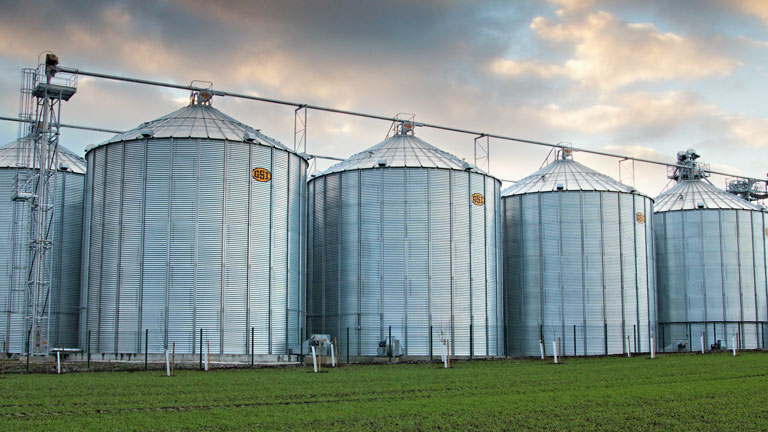Farmers and agriculture business owners are faced with several decisions regarding their operations to maximize profits. If you also own a farming business, you need to decide whether to purchase insurance coverage, more farmland and decide if on-farm grain storage is a better choice. When it comes to grain storage, several variables must be considered, such as do you already have storage space or is it expected that grain prices will rise in the next few months. Depending on some factors, you need to think if you should rely on a commercial storage facility or invest in on-farm grain storage bins. The key factors that influence your decision include cost and space. If you have the necessary area and resources to install grain storage bins, this investment is believed to provide a range of benefits.
If you’re dependent on commercial grain storage centers for years, you might wonder if on-farm grain storage is better for your business. So, to help you better understand on-farm grain storage, let’s check out some benefits of this farming equipment.
Benefits of On-Farm Crop Storage
Do you know there’s a method to sell grain at the highest prices throughout the year? Yes, there is! With the increasing adoption of on-farm grain storage, farmers are able to get more control over the sale of their produce. Getting storage in your hands eliminates the need of crossing your fingers and hoping for the best each harvest. It will boost your odds of making money from the crops. The standard method of taking grain to a feed mill or elevator incurs additional costs for drying, shrinking, storage, handling, and other services. All these additional expenditures can be avoided by storing the grains on-farm. On-farm grain storage is a feasible alternative to commercial grain storage and provides many advantages, such as:
- Monetary Gain
As mentioned above, the key advantage of on-farm grain storage is financial gain. One of the key reasons to invest in grain bins is to save the cost of commercial storage. It helps small independent farmers to save transportation and storage costs while overcoming market challenges. Moreover, on-farm bins can be used to store grains till the time market gets more lucrative to sell the produce. Selling grains around harvest isn’t profitable because a high supply drives prices down. But on-farm grain bins allow farmers to dry and store their surplus until the market is more viable for selling and stabilizing their revenue.
- Protection Against Unpredictable Weather
Grain storage bins are also helpful in guarding against unpredictable weather. Unexpected weather changes or natural calamities can cause significant grain loss. Even a brief rain shower can cause moisture damage to crops. But on-farm bins enable proper grain storage that maintains quality throughout the year.
- Grain for Animal Feed
On-farm grain bins give complete control to the farmers over the sales and use of the crops. Farmers can use grains to feed animals as needed. Animal feed has a relatively short shelf life. When grains are kept in the bins, they can be grained as per the need. It is an economical way to get fresh feed.
